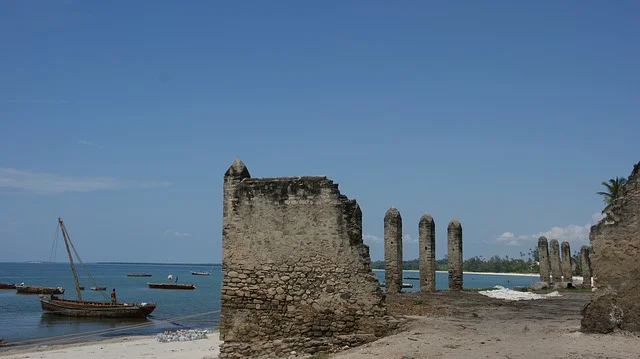Did Africans sell themselves into slavery? The conventional narrative of 17th and 18th-century European slavers was that the Africans themselves were responsible for the thralldom of Africans.
This claim is widely used in the twenty-first century for revisionist purposes, to minimize the harm done to Africans and their descendants by the racist trade and slavery practised by Europeans for four centuries.
The trade in African slaves by European slave traders was made possible in part by the widespread internal slavery on the African continent. Until 1650, most African slaves were sold to Africans engaged in the production and trade of gold and Arab slave traders who brought the (mostly female) slaves to the Middle East. Even the more than 12 million slaves taken from Africa by Western ships between 1600 and 1880 probably made up less than half of the slaves traded within Africa during that same period and left the continent through the Arab slave trade.
It has the advantage of pitting the descendants of slaves against the descendants of the colonized who “sold” them and avoiding any common claim. To avoid any contradiction with the Christian dogma, universalist, which grants Africans the quality of men, the slaveholders considered, or pretended to believe, with perfect hypocrisy, that the Africans they embarked were already slaves in Africa.
Thanks to this argument, Louis XIII, who at first refused to agree to the implementation of a slavery policy in France, finally gave in: it was argued that the transport of pagan Africans who were already slaves could be a means of converting them and then freeing them. It was, in a way, a good deed.
Voltaire, a French Enlightenment writer, historian, and philosopher famous for his wit, his criticism of Christianity, systematically used the procedure of the African slave. “We only buy domestic slaves from Negroes: we are reproached for this trade. A person that traffic their children is even more condemnable than the buyer. The trade demonstrates our superiority: he who gives himself a master was born to have one.”
Voltaire’s unbearable argument – which dares to argue that Europeans demonstrate their superiority through slavery – is not based on any truth. Almost all Africans deported to the West Indies were free men, women, and children, torn from their villages, captured for the European slave traders.
It was morally more acceptable and, above all, more profitable to delegate the capture operations to local subordinates, who were given weapons and a reward in the form of worthless merchandise or debased goods (alcohol).
Sometimes the only pay for the middlemen was to avoid boarding the slave ship themselves. The use of local middlemen was a time-saver because the sooner a slave ship arrived on the coast of Africa and left for the West Indies, the less there was to pay and feed the crew, the more profitable the expedition was. These subordinates were only a minority working on behalf of the slave traders.
In this sense, it is absurd and particularly dishonest to make an entire continent, victim of the slave trade and slavery, bear the responsibility of a crime organized from outside, under the pretext that a few collaborators participated in this crime.
On the contrary, most African kings resisted as much as they could to enslave their people. But the European slavers made a point of encouraging internal wars so that collaborators in the trade operations would replace these resisters. Obviously, the surveillance of the trade operations and the capture and destabilization of the African continent legitimized establishing European ‘trading posts’ on the coasts, which had small garrisons.
Some ‘historians’, subsidized and encouraged by European governments, have endeavored, at the beginning of the 21st century, to minimize the role of Europe in the racist trade organized by Europe against Africa from the 15th century onwards. To do this, they have taken up the traditional argumentation of the slave traders and sought to highlight a so-called “African slave trade” that would have existed from all eternity. They have endorsed these elucidations with their “scientific” authority.
According to the work of more serious and honest historians – notably the American Patrick Manning – everything leads us to believe that the slave trade only developed in Africa from the 15th century onwards to provide for the needs of Europeans, who had a lasting impact on the civilization of an entire continent.
In this sense, the use of collaborators for trade operations in the 17th and 18th centuries was a prelude to the destabilization policies that consisted of putting straw men at the head of African governments or provoking coups d’état.
These methods were commonly used at the end of the 20th and the beginning of the 21st century, despite apparent decolonization, to maintain the African continent under the tutelage of Europe, for economic purposes, under the pretext that Africa was not ready for democracy and that its leaders were corrupt.
